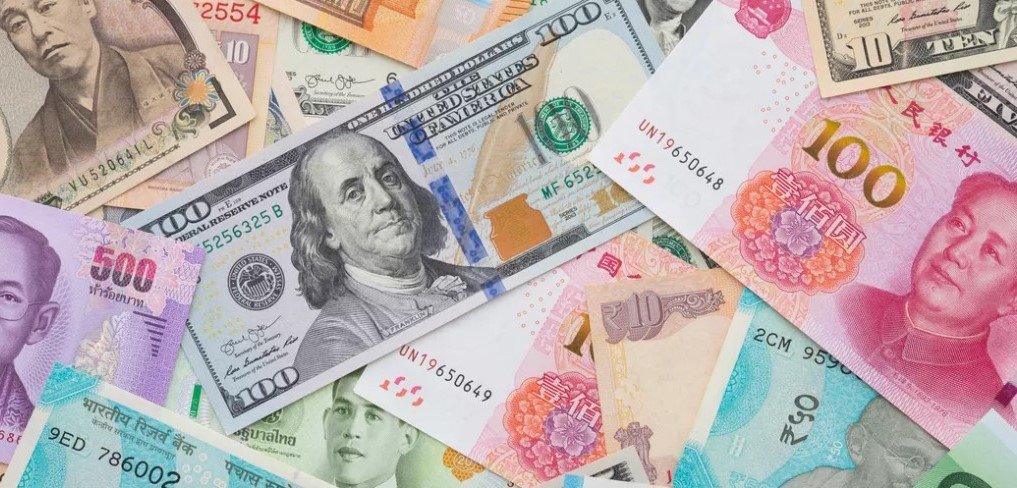Bangladesh Bank has begun calculating Bangladesh’s foreign exchange reserve according to International Monetary Fund (IMF) principles, which will be published on July 1.
Calculating and disclosing a country’s foreign exchange reserves is essential for economic transparency and financial stability. Bangladesh Bank recently announced that it would use dual methods to calculate its foreign exchange reserves. If the IMF system is implemented, a portion of the foreign exchange reserve will be removed from the calculation.
The decision is consistent with the recommendations of the IMF, which earlier this year approved a $4.7 billion loan to Bangladesh.
The need for transparent calculation
Transparency in the calculation of foreign exchange reserves is essential for providing reliable and precise data about a country’s financial standing. Disclosure of net reserve was one of the $4.7 billion IMF loan conditions. Dr. Zahid Hossain, former chief economist of the World Bank Bangladesh Office, emphasizes the importance of calculating and publishing the actual reserve in accordance with IMF conditions, which increases transparency and fosters confidence in reserve figures.
In this context, Bangladesh Bank Chief Economist Habibur Rahman stated that there will be no ambiguity regarding the reserve from July 1.
Adoption of new calculation method
The Bangladesh Bank will calculate the Gross Foreign Exchange Reserve (GIR) in accordance with IMF terms, while the Reserve Net International Reserve (NIR) will no longer be disclosed. In addition to the current method, the reserve calculation will also adhere to the 6th version of the IMF’s Balance of Payment and International Investment Position Manual (BPM-6). Certain components, such as investments in various sectors, the Export Development Fund (EDF), and the trade arrangement with Sri Lanka, are omitted from this method.
In 2012, the IMF implemented the BPM6 manual for reporting the reserve and balance of payment as part of its Safeguards Assessments agreement, which is applicable to all Fund members. Safeguards Assessments, which were introduced in 2000, are diagnostic reviews of five key areas of control and governance within central banks, including the external audit mechanism, legal structure and autonomy, financial reporting framework, internal audit mechanism, and internal controls system.
Every twelve years, the IMF conducts its Safeguards Assessments mission, the primary objective of which is to mitigate the risks of resource mismanagement and inaccurate data reporting. Following the 2012 release of BPM6, the Bangladesh Bank adopted it for the balance of payment reporting but disregarded the most recent reserve calculation manual. As a result, the banking regulator continued forex reporting in accordance with the BPM5 manual, which assisted the central bank management in displaying greater forex reserves, prompting the government to use them for various infrastructure projects.
Implications for reserve figures
The adoption of the method recommended by the IMF raises concerns regarding prospective changes to reserve figures. In May of 2023, Bangladesh’s foreign exchange reserves were valued at $29.87 billion using the current method of calculation. The exclusion of significant components such as the EDF and the Sri Lanka exchange arrangement, however, could have a negative impact on the figures if the new method is adopted. These exclusions will result in a smaller reserve being reported.
Consequently, the nation’s reserve will fall below $24 billion. And if followed strictly, the net reserve will decrease to $20 billion.
Unified exchange rate regime
In addition to the change in reserve calculation, the Bangladesh Bank has announced the implementation of a unified, market-driven single exchange rate regime beginning July 1. This regime permits market forces to determine the exchange rate between the Bangladeshi Taka (BDT) and foreign currencies, such as the US Dollar (USD).
Now, banks are paying Tk108.50 for expatriate income and Tk107 for export income. In addition, Bangladesh Bank is selling the reserve dollar for Tk106.
Criticisms and International Standards
The previous reserve calculation procedure was criticized, particularly by the IMF. The inclusion of various investments and liabilities in the reserve calculation, which inflated the reported figures, was questioned by the IMF.
Bangladesh Bank Governor Abdur Rouf Talukder said: “The investments we have made from the reserve are risk-free. All our loans have guarantors. All money will be returned to Bangladesh Bank. We can also recover Sri Lankan loans by adjusting them in their local currency.”
According to sources, the reserve has been used to create the Export Development Fund (EDF), the Green Transformation Fund (GTF), and the Long-Term Financing Facility (LTFF). In addition to being deposited with the International Islamic Trade Finance Corporation (ITFC), reserve funds are also held there. In addition, Payra Port Authority and Bangladesh Biman have been funded from the reserve via Sonali Bank (SBFF). In addition, Sri Lanka has received loans via currency exchange.
On 11 May of last year, roughly $6.5 billion was withdrawn from the reserve in these countries. Among them are $4.78 billion in EDF, $176 million in GTF, $273.7 million in LTFF, $247.4 million in ITFC deposits, $775 million to Payra Port Authority and Bangladesh Biman via Sonali Bank, and $200 million in loans to Sri Lanka.
According to the BPM-6 manual of the IMF, these liabilities do not qualify as reserve funds. These are non-liquid assets or investment-grade securities, said the IMF.
Dr. Ahsan H. Mansur, executive director of the Policy Research Institute (PRI), supports the implementation of the IMF’s method, noting that it is the international standard adopted by numerous nations.
Overall, Bangladesh Bank’s adoption of dual methods for calculating forex reserves enhances transparency and aligns with international standards, aiming for accurate reporting. However, concerns arise over potential impacts on reported reserves due to excluded components, emphasizing the need for clarity and consistency in disclosure to foster trust in the country’s financial standing.


